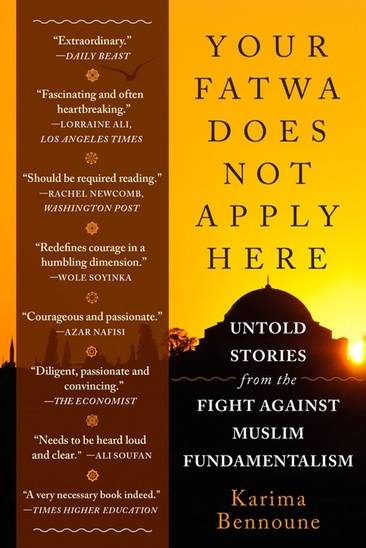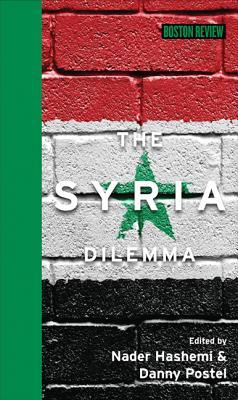book reviews
Podcast: Magonismo hits the mainstream
In Episode 162 of the CounterVortex podcast, Bill Weinberg reviews Bad Mexicans: Race, Empire, and Revolution in the Borderlands by Kelly Lytle Hernández. It is definitely a very hopeful sign that a briskly selling book from a mainstream publisher not only concerns anarchists, but actually treats them with seriousness and presents them as the good guys—even heroes. The eponymous "bad Mexicans" of the sarcastic title are the Magonistas—followers of the notorious Magón brothers, early progenitors of the Mexican Revolution of 1910-1920, who first raised a cry for the overthrow of the decades-long, ultra-oppressive dictatorship of Porfirio Díaz. "Bad Mexicans" was the epithet used by both Mexican and US authorities for this network of subversives who organized on both sides of the border. Listen on SoundCloud or via Patreon.
Book review: Underground Asia
Underground Asia
Global Revolutionaries and the Assault on Empire
by Tim Harper
Harvard University Press, 2021
This dauntingly detailed book on the roots of Asia's anti-colonial movements documents the early influence of anarchism, and how it was ultimately displaced by nationalisms of different stripes.
Book review: Impossible Revolution
The Impossible Revolution: Making Sense of the Syrian Tragedy
by Yassin al-Haj Saleh
Haymarket Books, Chicago 2017
This book is a necessary corrective to the dominant perception—left, right and center—that the opposition in Syria are all jihadists and dictator Bashar Assad the best bet for "stability." Long a left-wing dissident in Assad's Syria, Saleh is a veteran of the dictator's prisons. Here, he traces the origins of the Syrian revolution to agony caused by the regime's "economic liberalization" (socialist phrases aside), describes the initially unarmed opposition's popular-democratic nature, and discusses the struggle to keep the Free Syrian Army accountable to this grassroots base after it became clear a military dimension to the revolution was necessary. He makes the case that the Assad regime can be termed "fascist" even by the most rigorous definition and has been making good on its pledge to "burn the country" before ceding power. He also analyzes the emergence of "militant nihilism" in the form of ISIS and al-Qaeda (he rejects the word "terrorist" as propagandistic).
SYRIA'S KURDISH CONTRADICTION

by Bill Weinberg, Los Angeles Review of Books
A strange paradox of the vertiginous world situation is that a radical left movement strongly influenced by anarchism is being massively backed by the Pentagon in the war for northern Syria. This movement, in fact, is now the United States' closest partner among the indigenous forces in the Syrian war.
The Kurds of northern Syria call the region Rojava (sunset or west in their tongue), and since 2012 have had their own autonomous zone. Two years later, the celebrated battle of Kobani opened as this town within the autonomous zone was besieged by the self-declared "Islamic State" (ISIS). Kurdish women fighters with a consciously feminist ideology driving back the ultra-reactionary ISIS became a global meme.
The US, after initially writing off Kobani, started aiding the Kurdish fighters as they began to turn the tide, against all expectations. Warplanes were sent in their support, and the pact between the Pentagon and the revolutionary Kurds was forged. US military advisors were embedded in their militia. Kurdish-led forces are now fighting to take the ISIS de facto capital Raqqa in a Pentagon-directed campaign backed by US air-strikes.
JIHADIST SCYLLA, IMPERIAL CHARYBDIS

Double Bind
The Muslim Right, the Anglo-American Left and Universal Human Rights
by Meredith Tax
Centre for Secular Space, New York, 2014
Your Fatwa Does Not Apply Here
Untold Stories from the Fight Against Muslim Fundamentalism
by Karima Bennoune
WW Norton, New York, 2013
by Bill Weinberg, Dissent News Wire/Middle East Policy
Psychologist Gregory Bateson defines a "double bind" as a dilemma in which people are given conflicting sets of instructions so that obeying one means violating the other.
Meredith Tax in her brief study Double Bind (first published in the UK and now released in an American edition) explores that faced by the human rights community and progressives generally in confronting the "war on terrorism," in which Western states have committed horrific abuses in an ostensible struggle against reactionary political Islam. How do we defend the right to dissent when those being abused by the state do not recognize the right of others to dissent from their authoritarian dogmas?
SYRIA BETWEEN IRAQ AND A HARD PLACE

The Syria Dilemma
Nader Hashemi & Danny Postel, editors
Boston Review Books, MIT Press, 2013
by Bill Weinberg, Middle East Policy
An illustration of the very dilemma referenced in the title of The Syria Dilemma is that several contributors to this timely book cite 75,000 dead in the conflict; the figure is now above 100,000. The anthology, which saw print just as Obama threatened intervention in the wake of the August 2013 chemical attacks near Damascus, compiles editorials and policy recommendations produced in the preceding months. Co-editors Nader Hashemi and Danny Postel try to be objective, assembling both pro- and anti-intervention voices. With few exceptions, these exemplify the tunnel-vision that characterizes both sides, forestalling a painfully honest reckoning.
BOLIVIA: THE POLITICS OF EXTRACTIVISM

Geopolítica de la Amazonía:
Poder hacendal-patrimonial y acumulación capitalista
by Alvaro García Linera
La Paz, Bolivia: Vicepresidencia del Estado, 2012
by Devin Beaulieu and Nancy Postero, Against the Current
Geopolítica de la Amazonía: Poder hacendal-patrimonial y acumulación capitalista (Geopolitics of the Amazon, Landed Hereditary Power and Capitalist Accumulation, 2012) is the latest defense of the politics and policies of Evo Morales' leftist government by its premier intellectual, vice-president Alvaro García Linera. As the eloquent public spokesman for Morales' governing strategy since the election of the Movement towards Socialism (MAS) in 2005, García Linera has made a name for himself in Latin American leftist thought and political theory.















Recent Updates
1 day 17 hours ago
1 day 17 hours ago
1 day 18 hours ago
1 day 18 hours ago
1 day 19 hours ago
1 day 19 hours ago
1 day 19 hours ago
1 day 19 hours ago
1 day 20 hours ago
1 day 20 hours ago